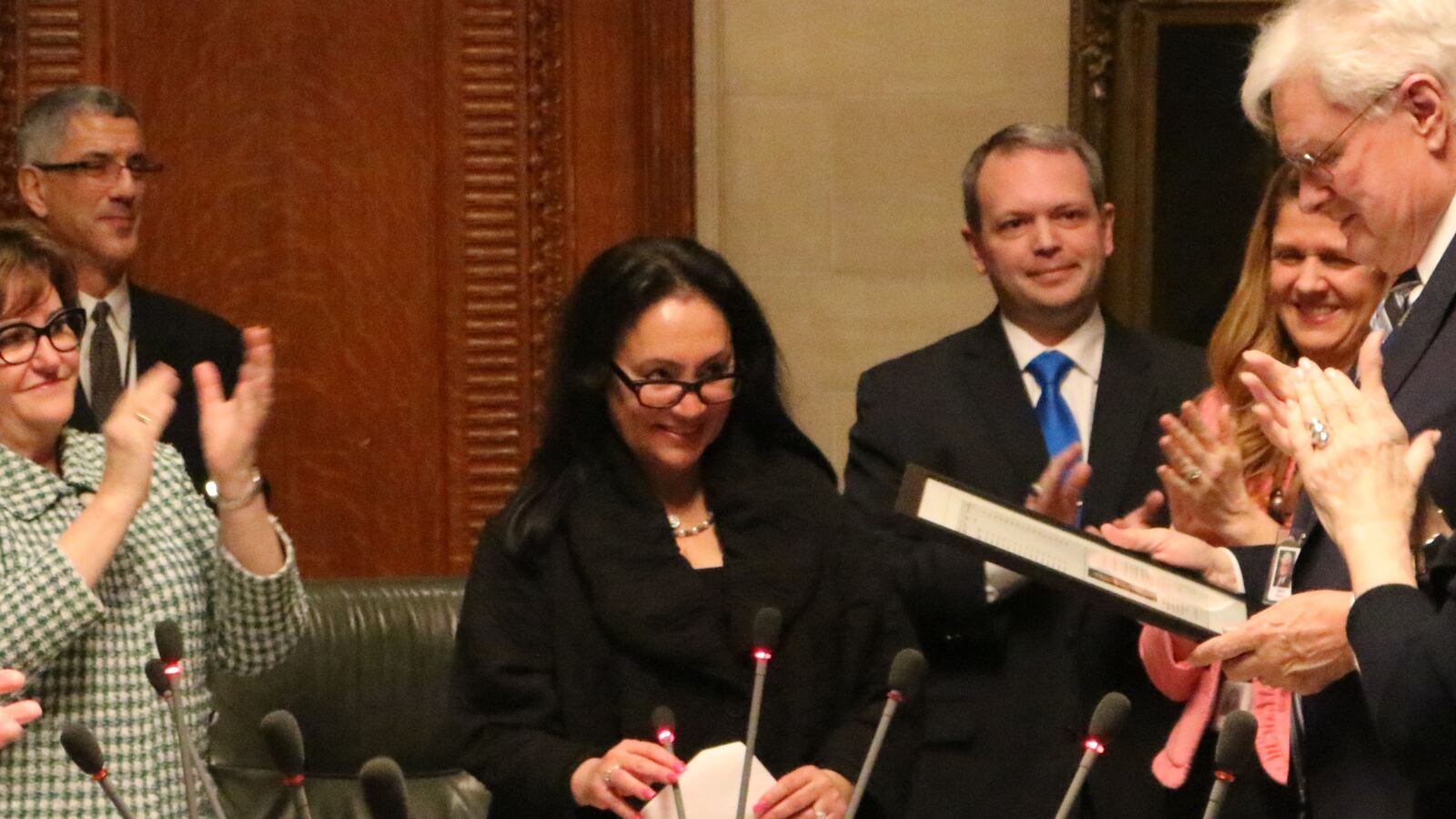You won’t find some of the hot-button issues facing state education policymakers on this month’s Board of Regents meeting agenda — but that doesn’t mean they won’t come up in Albany this week.
The legislature’s efforts to untie test scores from teacher evaluations have been major news for the state’s educators. Likewise, the state’s controversial testing vendor, Questar, has been making headlines with issues in New York and Tennessee. But neither matter requires immediate action from the Regents. Still, either topic could make a surprise appearance in discussion outside of the formal agenda — and they will almost certainly be talked about in the state education department’s hallways.
Here are the items that are definitely on the agenda for Monday’s meeting:
Student data privacy could bring up questions about Questar
Officials are set to discuss past data privacy breaches involving students and their draft regulations to protect students in the future. But beyond the topic of data privacy, another question lurks: Will state officials discuss their working relationship with Questar, the state’s testing vendor?
The state experienced a minor privacy breach in January and blamed Questar for the incident. Since then, schools across the state experienced a rocky roll-out of tests this year, including computer glitches. In Tennessee, which also uses Questar, the state experienced a slew of technical problems.
Social-emotional learning
State officials are releasing part of their response to national question of how to keep schools safe.
At Monday’s meeting, officials are set to discuss guidance documents meant to help educators. foster social-emotional learning. The documents grew out of New York State Safe Schools Task Force, suggesting officials believe that helping students develop social skills beyond math and reading will make schools more safe.
The documents explain the potential benefits of focusing on social-emotional learning, including greater academic achievement and decreasing implicit bias. They also spell out what skill officials hope students will develop, including self-management skills and ethical decision-making.
Charter school and bullying
The board is also voting to renew some charter schools, which can cause tension since the Regents have not always been friendly to charter schools. State officials are also diving deeper into school climate issues, discussing an update to New York’s rules related to bullying and harassment prevention and the addition of mental health into schools’ health education curriculum.
In higher education, officials are slated to talk about regulations related to substitute teachers and how much time prospective teachers should work in classrooms. Finally, officials will have a conversation about their My Brother’s Keeper initiative, a plan to help boys and young men of color.
Not on the agenda: Teacher evaluations
Across the street from the state education department, a controversy is brewing over whether lawmakers will overhaul the state’s teacher evaluation system.
The state Assembly has already passed a bill that would prohibit any requirement that state tests are used in teacher evaluations. If approved by the governor and state Senate, the policy would mark a dramatic reversal from three years ago, when lawmakers put in place a system where as much as half of an educator’s rating could be based on test scores.
The state education department is in a strange position in this battle. Though they paused the use of state test scores in teacher evaluations for the past few years, officials had also been working on a long-term plan to revamp the state’s evaluation system. This law has the potential to short circuit some of their plans.
State officials sent a mixed statement about their stance on the Assembly’s bill, praising the lawmakers who crafted the bill while warning of “unintended consequences.” Though state education department officials and Regents don’t technically have a say in whether the bill passes, their blessing or opposition help sway the decision.


